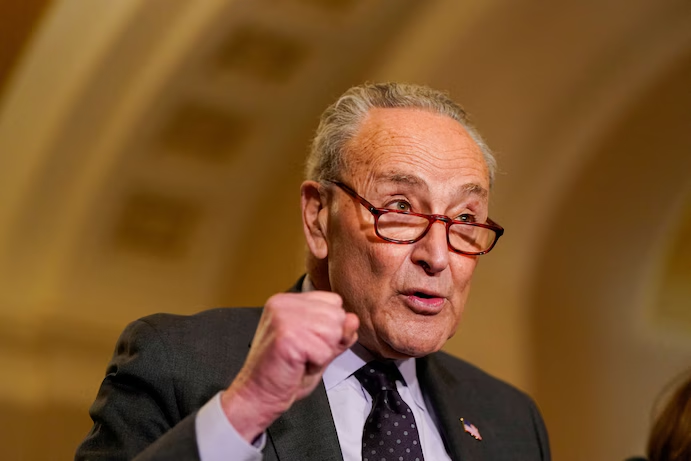An averted $1.1 billion budget cut is just a symptom of the deeper challenge.
By Colbert I. King, WAPO, March 14, 2025
The senior senator of New York, Charles E. Schumer (D), and the District of Columbia have quite a history. And it’s still unfolding.
In December, when Schumer was still majority leader, he left the District’s judicial system in the lurch when he allowed the Senate to adjourn without confirming President Joe Biden’s 10 D.C. judicial nominees. Schumer had plenty of time, but instead he allowed the city’s judicial vacancy emergency to languish for a year, even as court dockets jammed and caseloads bloated. The senator had this to say for himself in a year-end statement: “I wish we could have gotten more appointments done, like local D.C. judges.” So does the District.
The city might end up paying dearly for Schumer’s lack of diligence. It now falls to President Donald Trump and Senate Republicans to fill D.C. judicial vacancies. If Trump’s Cabinet picks, as well as his nomination of Ed Martin as U.S. attorney for the District, are any guide, the city’s judicial bench could well end up being seated with some gavel-wielding doozies.
This week the District found itself in the worst of all worlds — caught in the middle of warfare between congressional Republicans and Democrats over the GOP government-funding bill that was ultimately approved by the Senate on Friday.
That stopgap measure would have triggered an immediate $1.1 billion cut to the city’s 2025 budget because Republican lawmakers in the House mistakenly failed to carve out the exemptionfor the District that is typically included in continuing resolutions. The carve-out rationale is as simple as it is fair: The city’s budget is overwhelmingly funded by local tax dollars, not federal funds, and the appropriations fight is over federal spending.
EnterSchumer, this time in his capacity as Senate minority leader. The continuing resolution passed the House with the anti-D.C. provision and moved on to the Senate.The immediate issue: Without passage of the bill,the federal government would be forced to shut down. On Thursday, Schumer revealed — to the consternation of House Democrats and some of his Senate Democratic colleagues — that he would hold his nose and support the GOP bill because he believed Trump would have power to make even more spending cuts if the government came to a halt.
That move left the fundamental issue facing the city: A cut so deep would force hard choices on the mayor and D.C. Council, likely touching education, public safety and other critical services. Butthe dire spending issue was fixed, thanks to the deft handling of the problem by Sen. Susan Collins (R-Maine), chair of the Appropriations Committee, and the fast work of Maryland Sens. Chris Van Hollen (D) and Angela Alsobrooks (D) and Virginia Sens. Tim Kaine (D) and Mark R. Warner (D).
Collins introduced a measure co-sponsored by the four regional senators that she said was endorsed by Trump and supported by House Appropriations Chair Tom Cole (R-Oklahoma). So it would seem the city’s problem was remedied at the 11th hour. D.C. can put away the chopping block.
But more needs doing, and not on Capitol Hill.
Still missing from District leaders is any semblance of an organized, well-developed congressional-relations strategy, a necessity in dealing with today’s Republican trifecta in Washington. Not only years spent as a congressional staffer on D.C. affairs, but also three years of laboring as a deputy assistant treasury secretary for legislative affairs, taught me there’s no substitute for information-gathering, legwork and buttonholing on Capitol Hill. Temporize on that and look for more out-of-nowhere trainwrecks like one threatening to turn the city’s budget upside down.
Schumer is a case in point. District leaders must do their own heavy lifting on the Hill.
Remember the judges that never were.
https://www.washingtonpost.com/opinions/2025/03/14/schumer-dc-budget-cut-gop-congress

